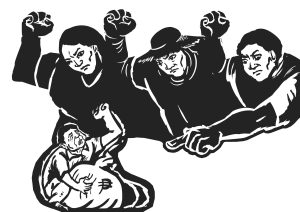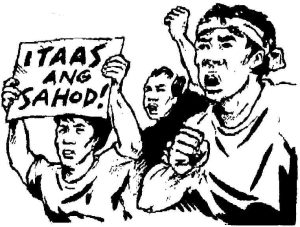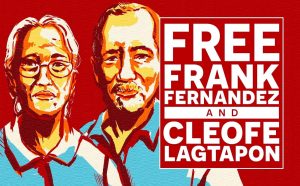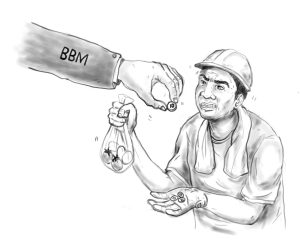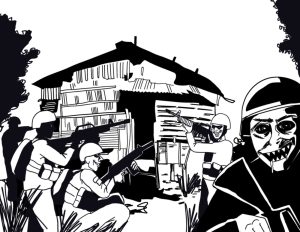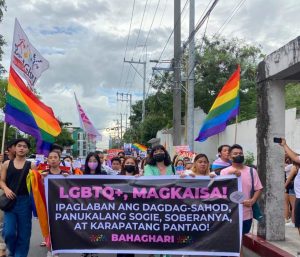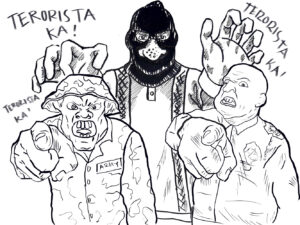Marcos Jr's first year Failure and burden to the people


Progressive groups protested in Manila to mark the first year of the illegitimate president Ferdinand Marcos Jr on June 30. Before this, they held the People’s Summit where various sectors condemned the regime’s incompetence, fascism and puppetry.
“Mahal sa Pilipinas” (“It’s expensive in the Philippines,” a sarcastic twist to the Marcos tourism slogan “Love the Philippines”), rallyists led by the Bagong Alyansang Makabayan declared. The Marcos regime failed to curb spiraling inflation, which hit a 14-year high at the onset of 2023.
Instead of the promised ₱20 per kilo, the cheapest price of rice in Metro Manila is now at ₱40, according to farmers. Compared to last year, the prices of meat, fish and most vegetables, garlic, onions and sugar are higher. Water, electricity and transport charges are also higher. Despite these, farmgate prices of farmers’ produce remain low.
Marcos remains silent about wage increase, even as national average minimum wages have fallen short of the so-called poverty threshold. His regime has no program to create decent jobs and continues to promote labor-export policy to squeeze remittances from millions of Filipino migrants. About 70% of the local labor force is informal and suffers from very low incomes, job insecurity and abuse by authorities.
Government employees are appalled by Marcos’ continued implementation of low wages within the bureaucracy and contractualization of 700,000 public workers.
Currently, the Philippines has the highest income inequality in East Asia. The richest 1% controls 17% of the national income, while that of the poorest 50% is equivalent to only 14%.
The regime has not provided any relief and instead reduced the already paltry government aid by 99.78%. From ₱233 billion in 2020, the regime only allocated ₱510 million in 2023.
Marcos continued the implementation of neoliberal and pro-foreign policies and programs which open the country’s resources to plunder and aggression on the pretext of development. He declared as crucial the operations of destructive mining, the construction of large dams, the construction of energy plants behind the veil of renewable energy, as well as the expansion of commercial plantations, tourist spots and labor zones. He authorized the continuation of 187 reclamation projects that ravage coastlines and oceans.
The regime violently suppressed the resistance of farmers, fishermen, and indigenous peoples against projects that endanger their livelihood and environment. Massacres, killings, illegal arrests and detentions, as well as bombings, hamletting and militarization, are relentless.
Since assuming power, Marcos traveled abroad 13 times, accompanied by his family, friends and favored businessmen. Together they pimped the country’s natural resources and cheap labor to foreign capitalists, hoping they will partner with local bureaucrats and bourgeoisie.
Apart from squandering public funds, Marcos spent his first year enriching himself and his group. Of the 31 priority bills he railroaded in Congress, 29 of these directly serve the interests of his cronies and the preservation of the status quo.
Foremost of these is the bill establishing the Maharlika Investment Fund which will concentrate billions of funds into his hands and those of his favored officials and businessmen. The Lower House also approved the 30-year National Infrastructure Program Bill (with the slogan “Building Better More”) to serve as conduit for corruption. Almost at the same time, the National Land Use Act was passed which will allow the widespread seizure and land-use conversion of hectares of ancestral and agricultural land.
“There is no reason to celebrate Marcos’ first year in power”, according to Bayan. “It should continuously be denounced for its anti-poor and anti-Filipino policies, and we should assert the people’s clamor for genuine freedom, democracy, and development.”

